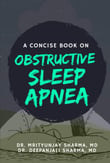Sleep Disorders
Blog post description.
SLEEP HEALTH
3/19/20243 min read


Sleep disorders encompass a range of issues related to sleeping, including difficulty falling or staying asleep, sleeping at inappropriate times, excessive total sleep time, or abnormal behaviors associated with sleep. These conditions can significantly impact one's health, quality of life, and overall well-being. Understanding the types, causes, and treatments of sleep disorders is essential for those seeking to improve their sleep and, by extension, their life.
Types of Sleep Disorders
Common sleep disorders include:
1. Insomnia: Difficulty falling asleep or staying asleep throughout the night.
2. Sleep Apnea: Characterized by pauses in breathing during sleep.
3. Restless Legs Syndrome (RLS): An irresistible urge to move the legs, usually due to uncomfortable sensations.
4. Narcolepsy: Experiencing overwhelming daytime drowsiness and sudden attacks of sleep.
Symptoms and Warning Signs
Symptoms vary depending on the disorder but generally include:
- Difficulty falling or staying asleep
- Excessive daytime sleepiness
- Irregular breathing patterns or snoring loudly
- Urges to move while trying to fall asleep
- Unusual or bothersome movements or experiences during sleep
- Difficulty staying awake during the day
- Unrefreshing sleep, leading to fatigue, irritability, or difficulty concentrating
Causes and Risk Factors
Sleep disorders can stem from various factors:
- Physical Health Conditions: Such as heart disease, lung disease, nerve disorders, and pain.
- Mental Health Issues: Including anxiety, depression, and stress.
- Lifestyle Choices: Such as irregular sleep schedules, unhealthy diet, and lack of exercise.
- Environmental Factors: Including noise, light, and temperature disruptions.
Managing and Treating Sleep Disorders
Treatment depends on the type of sleep disorder and may include:
- Lifestyle Modifications: Establishing a regular sleep schedule, creating a comfortable sleep environment, and limiting caffeine and alcohol intake.
- Behavioral Therapies: Cognitive-behavioral therapy (CBT) for insomnia can help change thoughts and behaviors that affect sleep.
- Medication: Prescribed for short-term relief or when other treatments haven’t helped.
- Medical Devices: For sleep apnea, devices like CPAP (continuous positive airway pressure) machines can keep the airway open during sleep.
- Surgery: In rare cases, surgery may be required to remove tissue blocking the airway or to correct abnormalities.
Supporting Someone with a Sleep Disorder
Being supportive involves understanding the impact of sleep disorders and encouraging the individual to seek treatment. Offering to help with research, attending doctor appointments, or simply providing a listening ear can be invaluable.
Conclusion
Sleep disorders are more than just a nuisance; they are serious conditions that can detrimentally affect one's physical, mental, and emotional health. Recognizing the signs and seeking appropriate treatment is crucial. With the right approach, including medical intervention and lifestyle changes, individuals can find relief from sleep disorders and enjoy the restorative sleep they need to lead healthy, productive lives.
Disclaimer
It's essential to consult with a healthcare professional for a proper diagnosis and personalized treatment plan. This overview is meant to inform and guide but cannot replace professional medical advice. If you're experiencing sleep-related issues, reaching out for help is the first step towards better sleep and improved health.
By Dr. Mrityunjay Sharma & Dr. Deepanjali Sharma






